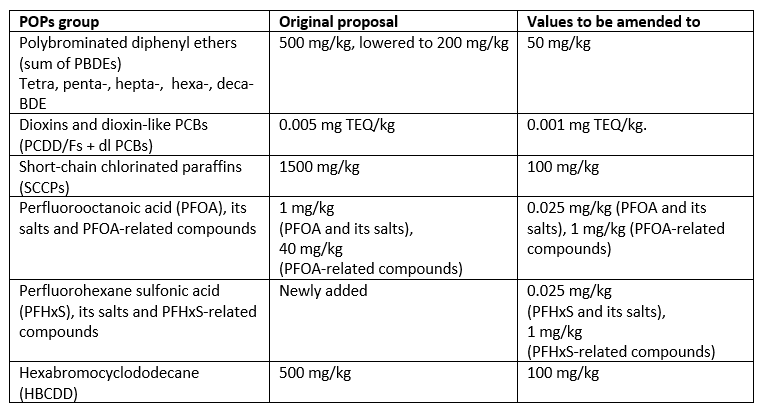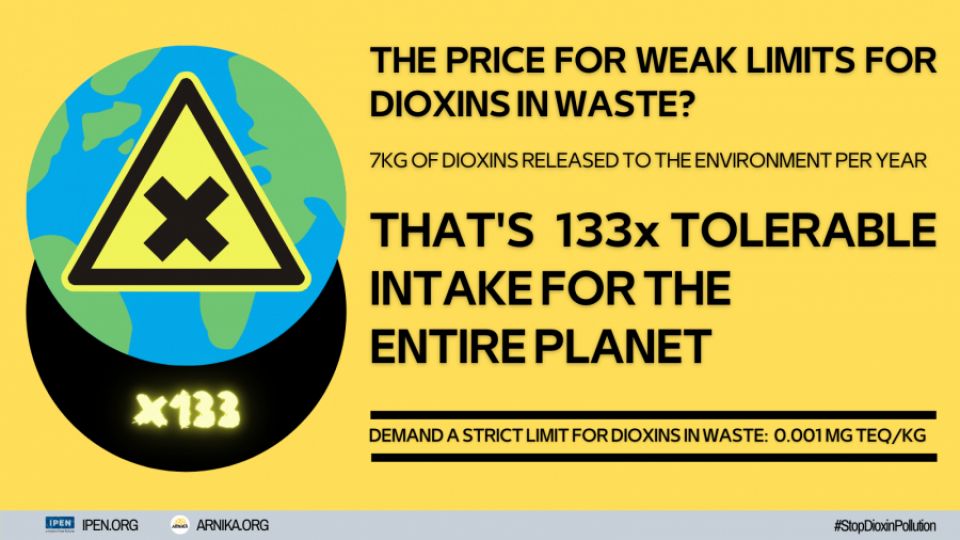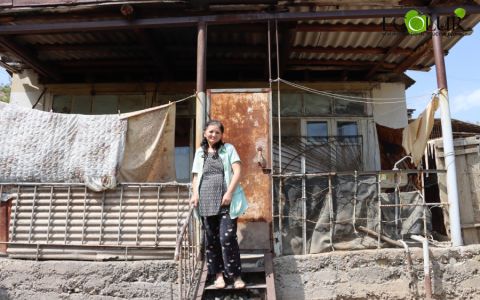The EU is proposing to adopt new limit values for persistent organic pollutants (POPs) in waste by amending Annexes IV and V to the Regulation (EU) 2019/1021 of the European Parliament and the Council on persistent organic pollutants. IPEN and Arnika urge Members of the European Parliament to strengthen the current proposal as suggested in some amendments.
Recycling POPs in waste is one of the reasons for the contamination of new products, including toys, made of recycled material. This disrupts the circular economy by allowing POP-rich material to circulate in our products and waste and increases the exposure of vulnerable human populations. With the adoption of such values, the downstream user industries will suffer from obtaining recycled materials containing high levels of legacy chemicals, which will further prevent them from increasing the use of recycled materials and their re-entering the economy.
The transition to high-quality, toxic-free material cycles cannot co-exist with an approach that allows the recycling of POP-containing wastes based on weak POP limit values. By establishing strong POP limit values for waste, the EU can demonstrate global leadership, increase the protection of human health, and promote the development of a circular economy free of contamination globally.
A chart comparing the original proposals and the maximum values allowed that IPEN and Arnika call for:

The reasoning for strengthening the POP waste limits for specific POP groups:
Polybrominated diphenyl ethers (PBDEs), commonly used flame retardants banned more than ten years ago, are still found in high concentrations, especially in e-waste and end-of-life vehicles. The currently proposed limits are set to provide maximum recycling rates for plastics containing PBDEs, given the current levels of PBDEs in waste. The methodology for setting limits does not take into account the healthcare costs associated with long-term exposure to PBDEs, which are classified as endocrine disruptors and contribute to severe neurotoxicological defects. “Widespread contamination by PBDEs is estimated to have human health costs in the EU of around €10 billion/year” (EC Impact Assessment, p. 45). The majority of the e-waste and ELV waste currently disposed of contains PBDE levels below the currently proposed 500 mg/kg (the EU Commission Impact assessment estimates that the current PBDE levels range between 200 mg/kg for e-waste and 350 mg/kg for ELV). The limits should be lowered to 50 mg/kg for PBDEs – otherwise, the majority of PBDEs will reenter the recycling process. Additionally, the limits adopted by the EU are generally mirrored at the international level – for the global POP waste limits in the Stockholm Convention – and are therefore adopted globally. Therefore, weak EU POP waste limits set a precedent for global waste limits for POPs in countries where the ability to manage POP waste is much less safe and environmentally conscious, while it opens the doors for exporting such waste outside the EU.
Chlorinated Dioxins and Furans, including dioxin-like PCBs, where the major source of contamination is waste incineration residues, were proposed to have waste limits that may cause the free movement of highly contaminated materials into construction projects and other uses. Even the more progressive POP waste limit of 0.003 mg TEQ/kg will result in separating only a small portion of waste that contains dioxins, thus permitting its circulation in use without any monitoring of the further spread of dioxins from waste. Samples of fly ash from only three municipal waste incinerators among 35 European facilities were above the suggested limit value of 0.005 mg TEQ/kg (Ramboll report for EC from 2019). Waste incineration fly ash containing significant levels of dioxins is suggested for use, for example, in remediation projects, for building roads and embankments, and/or even as additives in cement. It is also well documented that the free use of waste incineration fly ash leads to the contamination of food chains, exceeding the current EU standards for food by 12-fold and more (cf. Katima et al., 2018).
Short-chain chlorinated paraffins (SCCPs) are present primarily in waste conveyor belts used in underground mining. This is a very specific type of waste. The proposal set the value so high (1500 mg/kg) because of the inability to separate this waste upstream. A limit of 100 mg/kg would not create problems for other waste streams.
Waste containing hexabromocyclododecane (HBCDD) can be separated and treated even if lower limits are adopted. The lower limits are also an incentive to ensure more effective segregation and sorting of contaminated panel waste for elimination in the future.







